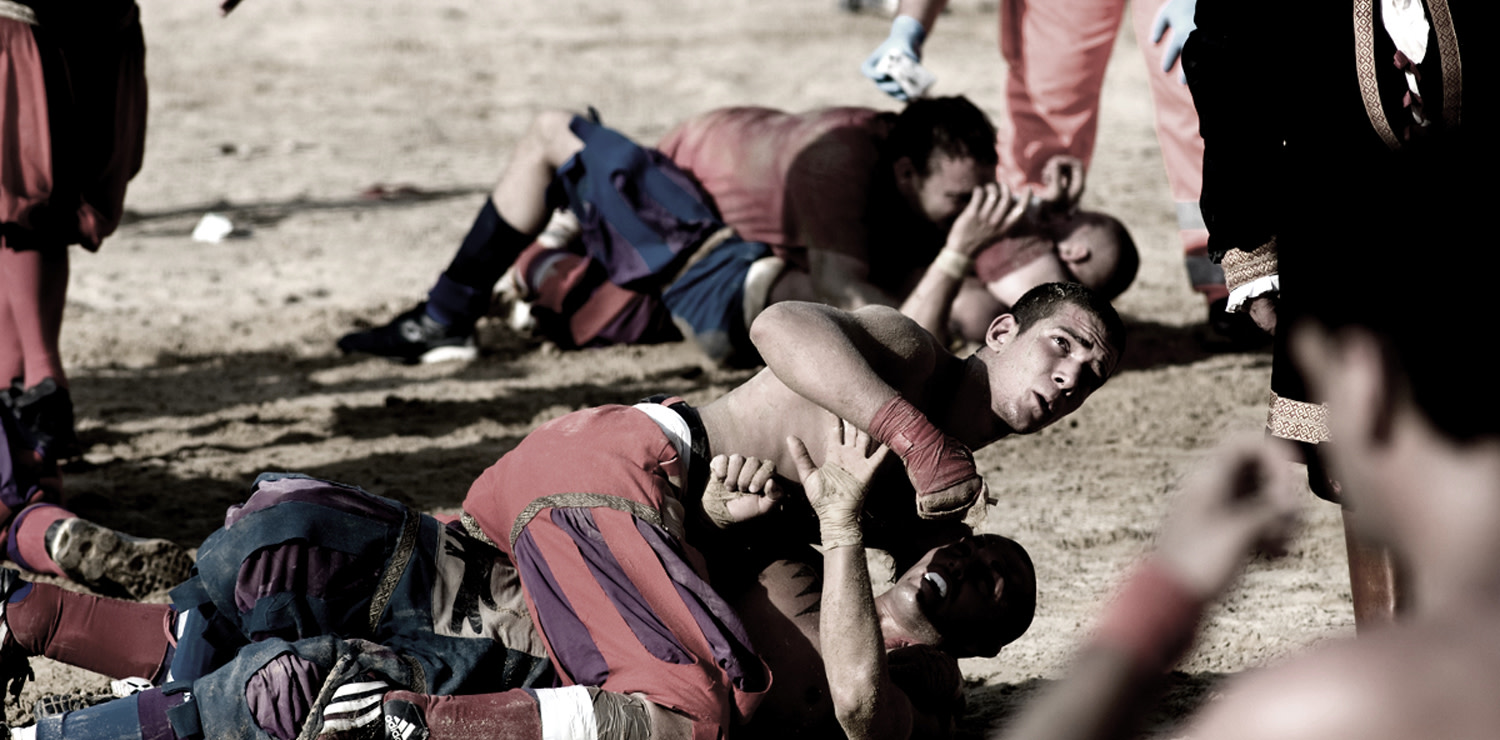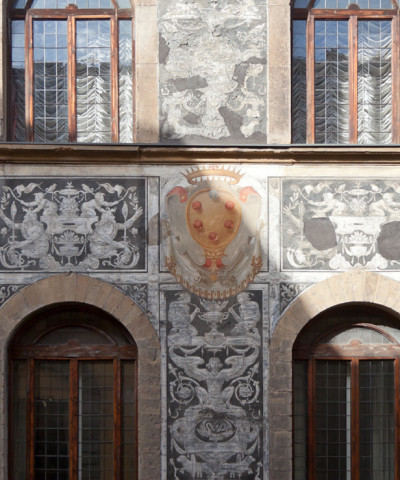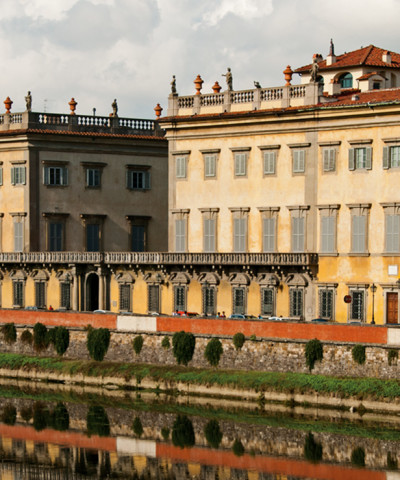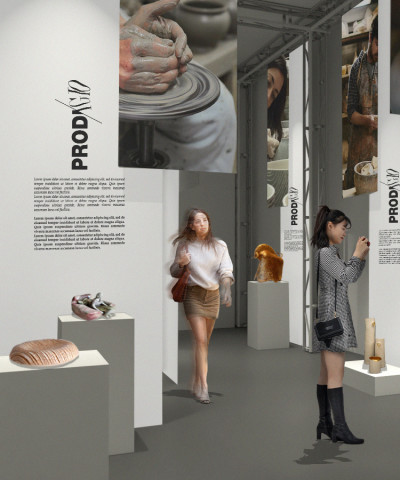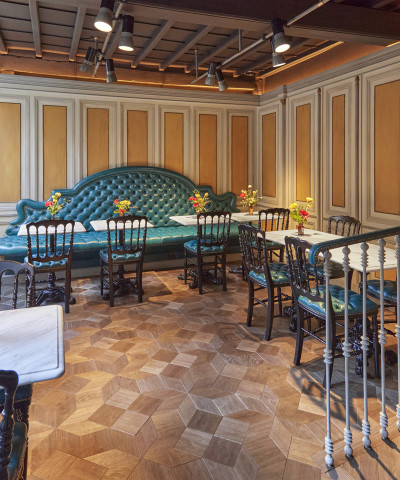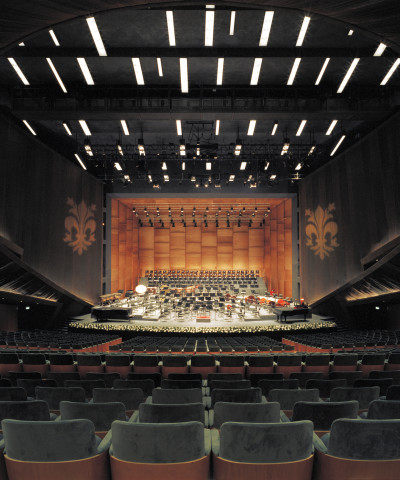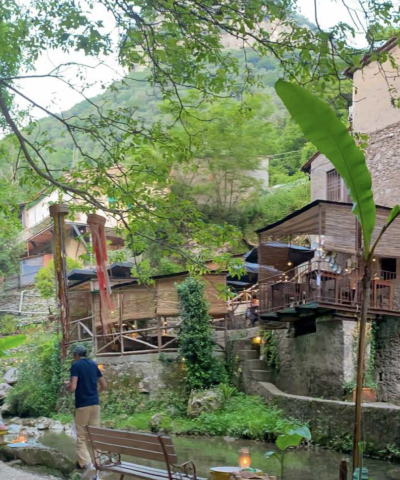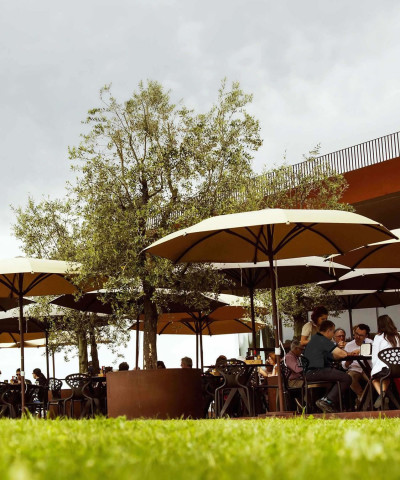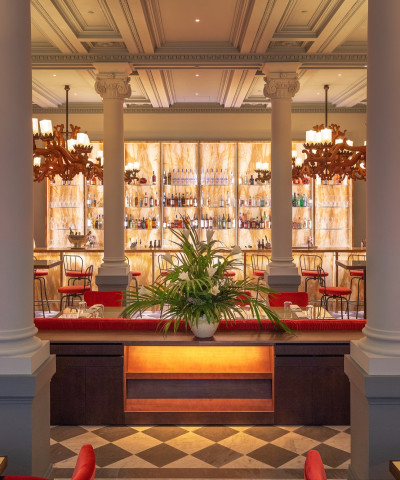The Florentine Historic Football
Appointment for the final on 15 June
Florentine Historical Football is represented by fifty minutes of strength, passion, sweat, fatigue and combat, played out in the gaudy liveries of yesteryear, soon to be transformed into fierce naked torsos struggling with tenacity and fury on a thick carpet of sand that cushions the blows of the falls but at the same time makes the movements heavy.
THE COLORS AND NEIGHBORHOODS
Each year teams from the city's neighborhoods compete, each with their own colors:
Whites from Santo Spirito
Reds of Santa Maria Novella
Greens from San Giovanni
Blue of Santa Croce
The competition between these four historic neighborhoods is intense both on the field and in the stands. Although few native residents still live in the historic center districts today, the sense of belonging and pride are certainly hallmarks of Florentines.
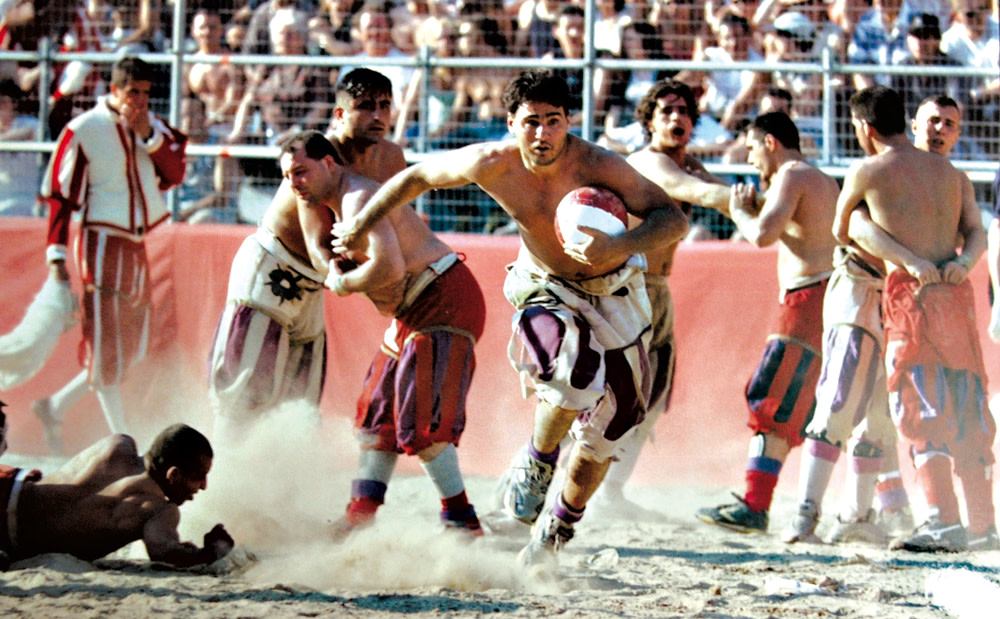 calcio storico fiorentino
calcio storico fiorentinoWHEN PLAYING
After the two semifinals were played in early June, for the third year in a row, the Blue of Santa Croce and the Red of Santa Maria Novella will compete in the final. This year the final is traditionally held not on June 24 on the feast of St. John the Baptist, patron saint of Florence, but on Saturday, June 15, to avoid the municipal election runoff scheduled for Saturday, June 22 and Sunday, June 23. The match is preceded by the historical procession that leaves at 3:45 p.m. from Piazza Santa Maria Novella and passes through Piazza della Signoria.
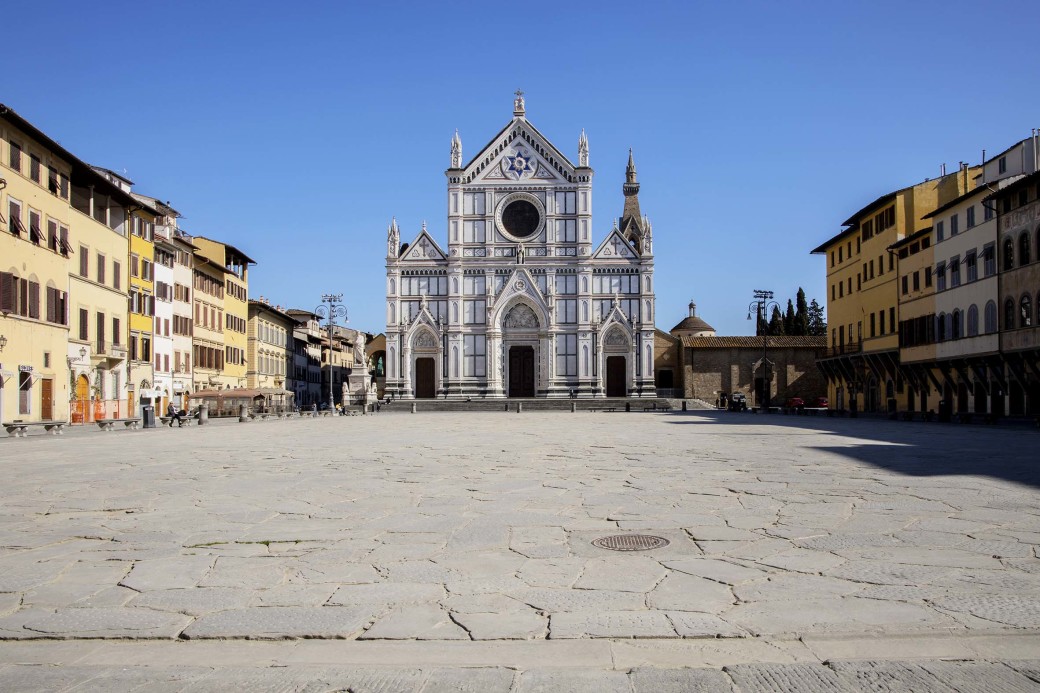 Pizza Santa Croce nei giorni del lockdown dovuti all'emergenza Coronavirus
Pizza Santa Croce nei giorni del lockdown dovuti all'emergenza CoronavirusTHE STORY
The post is the "hunt," as they say, for the ball that ends up in the opponent's goal. Dante does not mention this, a sign that in his time the tournament was not played, since his work is also a formidable encyclopedia of the time. But it is known that as early as the second half of the fifteenth century, young Florentines played soccer in the squares and streets, decked out in their colorful liveries.
Slowly they went on to use the city's most important squares, from Piazza Santo Spirito, to Santa Maria Novella, to Santa Croce. And historic soccer began to be one of the entertainments used especially during the carnival period or on special occasions. It was from the beginning a tough game in which young noblemen competed to make a good impression in front of noblewomen. It was, however, in Santa Croce, where the tournament still takes place today, that the memorable game was played, the first of which there is a true official record and which then remained in history as the start of the tradition.
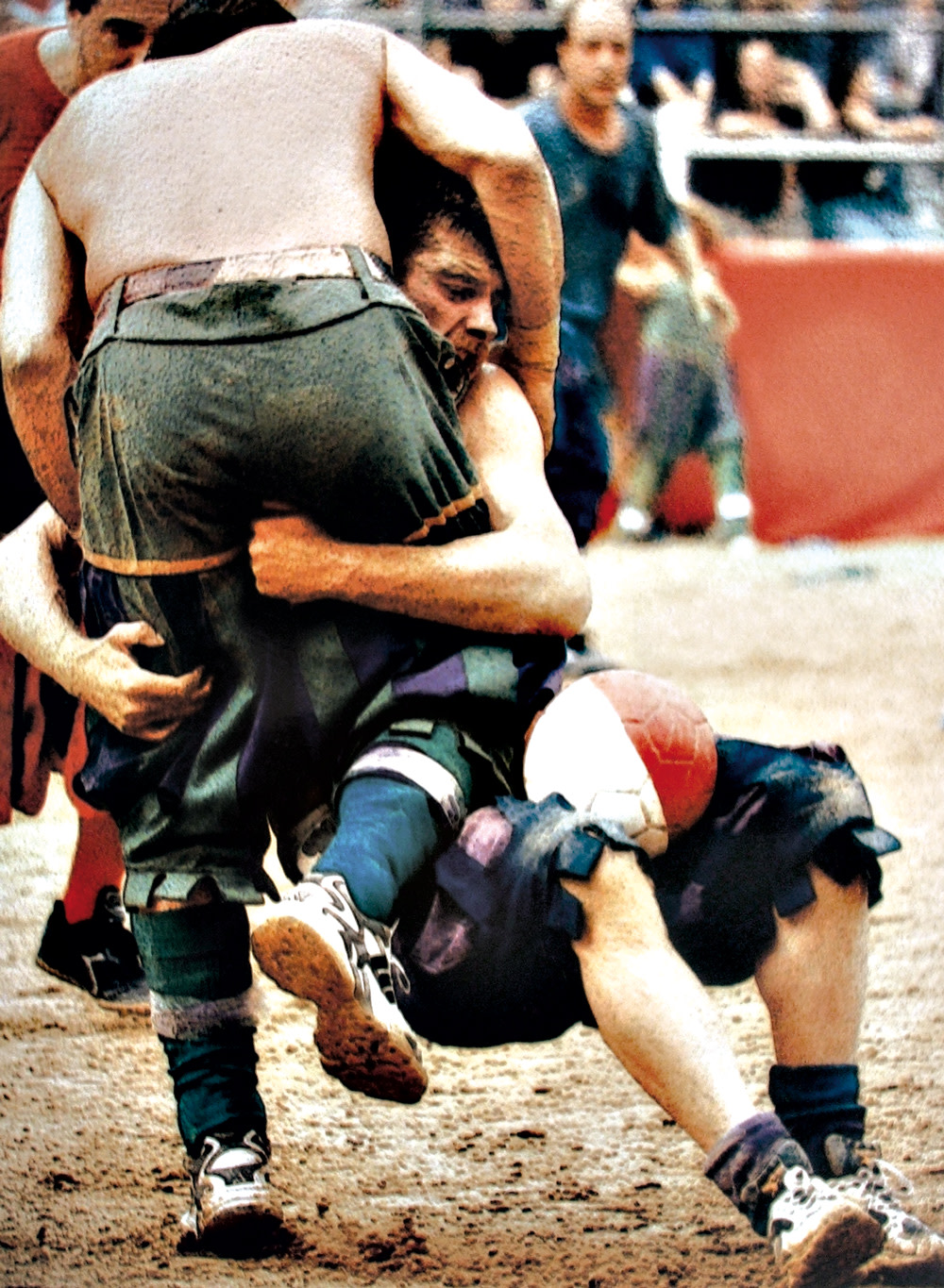 L'intensità del Calcio Storico Fiorentino
L'intensità del Calcio Storico FiorentinoTHE RULES
On the rectangular field divided into two perfect squares, the two teams of 27 kickers on each side begin competing for the ball after the firing of culverins and in honor of the magnificent messenger who watches from the stands.
Shots of almost any kind are allowed, and the judge-referee aided by his six linesmen, directs the match not without effort. The kickers must overcome the opposing barrage and send the ball inside the net that occupies the entire width of the field. A mistake costs the other team a point.
Each point is a hunt, and every two half-hunts the players change fields. The winning team is given as a prize a white heifer that used to be slaughtered and is now symbolic, plus the "cencio," as the painting by a Florentine painter is called.
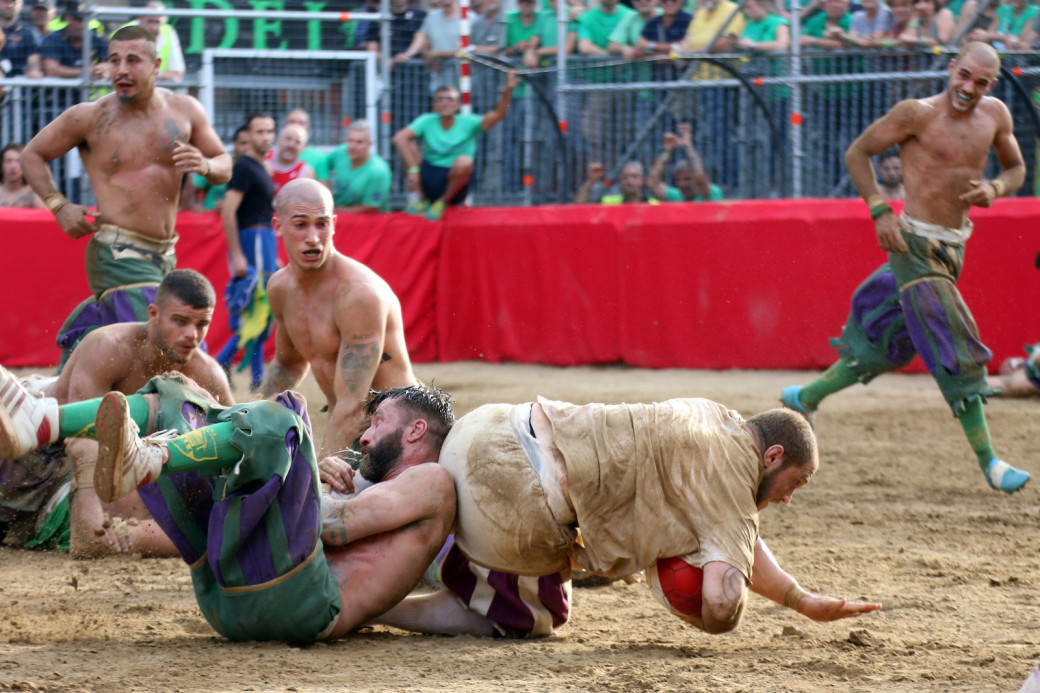 Calcio storico Firenze
Calcio storico FirenzeWHERE TO WATCH THE GAME ON TV
The Florentine Historical Football final is broadcast free-to-air throughout the region by Toscana Tv (digital terrestrial channel 11), while streaming the tournament for a fee on the DZN platform.






